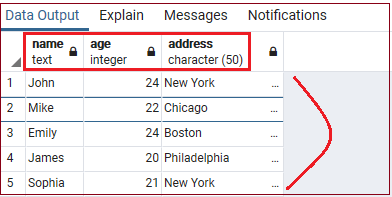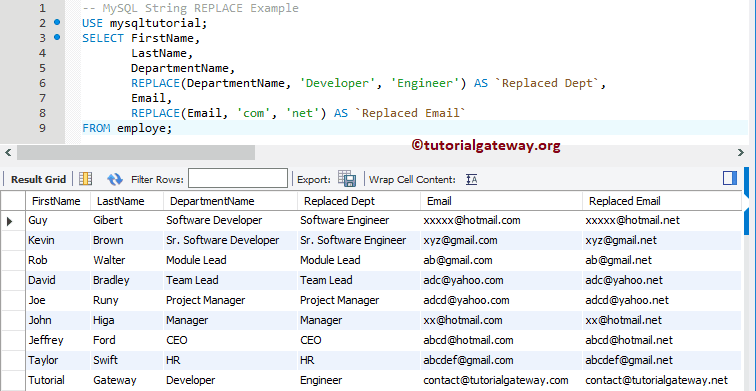

Substring ( string text FROM pattern text FOR escape text ) → textĮxtracts the first substring matching SQL regular expression see Section 9.7.2. Substring ( string text FROM pattern text ) → textĮxtracts the first substring matching POSIX regular expression see Section 9.7.3. Substring ( string text ) → textĮxtracts the substring of string starting at the start'th character if that is specified, and stopping after count characters if that is specified. Returns first starting index of the specified substring within string, or zero if it's not present. Position ( substring text IN string text ) → integer Overlay('Txxxxas' placing 'hom' from 2 for 4) → Thomas If count is omitted, it defaults to the length of newsubstring. Replaces the substring of string that starts at the start'th character and extends for count characters with newsubstring. Overlay ( string text PLACING newsubstring text FROM start integer ) → text Since this version of the function accepts type character directly, it will not strip trailing spaces. Octet_length('josé') → 5 (if server encoding is UTF8) This function can only be used when the server encoding is UTF8. The optional form key word specifies the form: NFC (the default), NFD, NFKC, or NFKD. Returns number of characters in the string.Ĭonverts the string to all lower case, according to the rules of the database's locale.Ĭonverts the string to the specified Unicode normalization form. Returns number of bits in the string (8 times the octet_length). Note that checking for normalization using this expression is often faster than normalizing possibly already normalized strings. This expression can only be used when the server encoding is UTF8. Text IS NORMALIZED → booleanĬhecks whether the string is in the specified Unicode normalization form. If you want to concatenate an array's text equivalent, cast it to text explicitly.) (The non-string input cannot be of an array type, because that would create ambiguity with the array || operators. Now, (242/6530) * 100 = 3.7, so the SPLIT_PART solution takes 3.7% of the time of the regex one (~ 27 times faster).Converts the non-string input to text, then concatenates the two strings.
POSTGRESQL REPLACE FIRST CHARACTER IN STRING TRIAL
SELECT regexp_replace(name, '(?fiddle architecture is one of microcontainers where databases are created on the fly, so the results of one trial cannot influence the results of any other. EXPLAIN (ANALYZE, BUFFERS, COSTS, TIMING) The fiddle for this performance analysis is available here.

I did the same with the regex solution accepted answer. Ran it 3 times - 244, 241, 242 ms - average 242ms - a quarter of a second! Then I ran: EXPLAIN (ANALYZE, BUFFERS, COSTS, TIMING) I used a RANDOM_STRING function (from here and shown at the bottom of the answer) and GENERATE_SERIES to generate 200,000 random 1st, 2nd and 3rd names as follows: INSERT INTO nom Now, this becomes interesting when we look at performance. The REPEAT function (minus 2) serves to ensure the requirement that the "Word length should stay same".


 0 kommentar(er)
0 kommentar(er)
